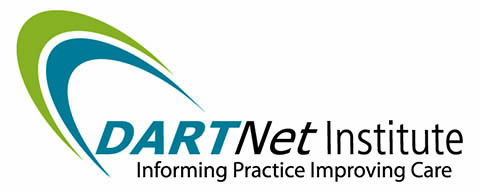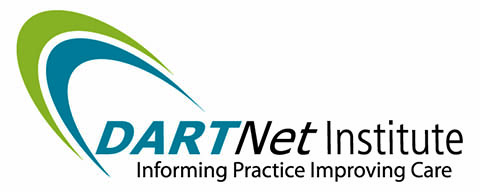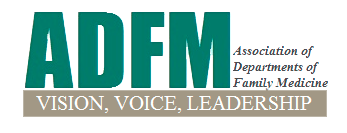2023 NAPCRG Annual Meeting Schedule
The following outlines the schedule for the 51st Annual Meeting happening October 30 - November 3, 2023, at the Hilton San Francisco Union Square in San Francisco, California (U.S.). Please check back with us for any schedule updates.
Looking for a specific session or topic? Try our session search tool.
Day at a Glance Schedules
- Preconference: Monday, October 30
- Day 1: Tuesday, October 31
- Day 2: Wednesday, November 1
- Day 3: Thursday, November 2
- Day 4: Friday, November 3
CME Credit
The AAFP has reviewed 2023 NAPCRG Annual Meeting and deemed it acceptable for up to 31.50 Live AAFP Prescribed credits. Term of Approval is from 10/30/2023 to 11/03/2023. Physicians should claim only the credit commensurate with the extent of their participation in the activity.
AAFP Prescribed credit is accepted by the American Medical Association as equivalent to AMA PRA Category 1 credit(s)™ toward the AMA Physician's Recognition Award. When applying for the AMA PRA, Prescribed credit earned must be reported as Prescribed, not as Category 1.
Please note that 25 posters, oral presentations and workshops were denied credit, so be aware of this as you plan your Annual Meeting agenda. Here's a list of exempt sessions.
Download the 2023 CME certificate
Pre-conference Activities - Monday, October 30
Preconference Concurrent Sessions
8:30 a.m. - 4:30 p.m.
PR3: Artificial Intelligence and Machine Learning (AI/ML) Bootcamp
- Room: Imperial Ballroom A
Join us for our Preconference Workshop on Artificial Intelligence and Machine Learning (AI/ML) in Primary Care! Immerse yourself in a day of knowledge sharing, engaging discussions, and exciting presentations as we delve into the world of AI/ML applications in primary care. This workshop is designed to educate participants on the latest concepts, advancements, and challenges in AI/ML, with a specific focus on primary care settings.
During a morning lecture series, experts will guide you through the fundamental concepts and foundations of AI/ML, the current state of AI/ML in primary care through real-world case studies and success stories, and the potential benefits and challenges associated with its adoption. In the afternoon, you will witness a "Mock Shark Tank" session wherein Grant Generating Project (GGP) Fellows will present AI/ML use cases, seeking valuable feedback and insights from our distinguished panelists and attendees.
- Fee: $0
- Pre-registration is available but NOT required.
- This preconference is open to all.
10 a.m. - 2 p.m.
PR1: Rising Stars in Research
- Room: Yosemite B
Presented by Meghan Gilfoyle, MSc; Minika Ohioma, MBChB, MSc candidate; Ione Locher, MD, BA, MS; Taylor Bosworth, BS, AAHS; T.M. Ayodele Adesanya, MD, PhD; Ashley Chisholm, MSc, PhD Candidate; Bryce Ringwald, MD
The trainee pre-conference workshop will consist of skill building and career development sessions, as well as relevant topical sessions aligning with our theme “Research of the Future.” This includes topics surrounding the use of Artificial Intelligence in primary care and patient and public engagement in primary care research. This workshop will consist of didactic sessions (e.g., presentations), as well as group discussion and activities. During this time, you can build connections with peers from around the world!
Download the Trainee Resource Guide to the 2023 Annual Meeting
- Fee: $0
- Pre-registration is required.
- This preconference is open to trainees and mentors.
1 p.m. - 5 p.m.
PR2: Patient and Clinician Engagement (PaCE) Program: Characteristics of the “just right” investigator for patient engaged research
- Room: Imperial Ballroom B
Presented by Raymond Haeme, MS;; Vivian Ramsden, PhD, RN, MCFP (Hon.); Susan Lowe; Kirk Mason, BSc, MDes Candidate; David Kaplan, MD, CCFP, FCFP, MSc; Joseph LeMaster, MD, MPH, MPH
The preconference workshop will feature guest speakers followed by break-out groups to discuss what makes the “just right” Principal Investigator (PI) What are the necessary characteristics, attitudes, and actions a PI requires to form a strongly engaged research team? That is, a research team that fully engages patient or community member partners to achieve meaningful and implementable results.
- Fee: $0
- Pre-registration is required.
- This preconference is open to all.
5:30 p.m. - 6:30 p.m.
New Member & First Time Attendee Session
- Room: Plaza Room B
Thank you to our sponsor for the New Member and First Time Attendee Session, American Board of Family Medicine
6:30 p.m. - 7:30 p.m.
Opening Social Reception
- Room: Franciscan Ballroom
Thank you to the sponsors for the Opening Reception, DARTnet Institute and ADFM!
Day 1 - Tuesday, October 31
7 a.m. - 8 a.m.
Breakfast and Special Interest Group (SIG) Meetings
- Room: Grand Ballroom B
Special Interest Groups open to all:
- CASFM Medical Education
- CASFM Practice Based Research Network (PBRN)
- Mid-Atlantic Research Consortium Workgroup Meeting
- Homelessness and its impact on health and health care use
- Effects of climate change on health and related research opportunities
- How to best change primary care to address a changing environment?
- Collaboration on refugee/immigrant healthcare research
8 a.m. - 8:45 a.m.
Welcome and Business Meeting
- Room: Grand Ballroom B
8:45 a.m. - 10 a.m.
Plenary Session 1
Limiting global warming to 1.5 - 2.0º C: A necessary and unique role for health professionals
Presented by Edward Maibach, MPH, PhD (George Mason University Center for Climate Change Communication)
- Room: Grand Ballroom B
- Learn more about Dr. Maibach
Climate change — and the world’s continued reliance on its primary cause, fossil fuels — is arguably already the leading preventable cause of morbidity and mortality worldwide, and the magnitude of the risk is rapidly escalating. In this talk, Dr. Maibach will make the case that health professionals have a necessary role in limiting the health risks of climate change and the fossil fuel economy, as well as a unique — and possibly uniquely impactful — role. He will present communication research findings that reveal how health professionals can effectively lean into their unique and necessary roles
10 a.m. - 10:15 a.m.
Break
10:15 a.m. - 12:15 p.m.
BRC Oral Presentations
- Room: Union Square 15 & 16
10:15 a.m. - 11:15 a.m.
- OP 1: Instrument Development
Room: Grand Ballroom B
Moderator: Ginetta Salvaggio
- OP 2: Survey Research
Room: Union Square 19 & 20
Moderator: Dulcinea D. Rakestraw
- OP 3: Research Capacity Building - Section 1
Room: Union Square 22
Moderator: Louise Acheson
- OP 4: Economic or Policy Analysis
Room: Union Square 23 & 24
Moderator: Sarah Riutta
- OP 5: Community Based Participatory Research - Section 1
Room: Franciscan A
Moderator: Korey Kennelty
- OP 6: Infectious Disease
Room: Franciscan B
Moderator: Ione Locher
- OP 7: Men’s Health
Room: Franciscan C
Moderator: Raymond A. Haeme
- OP 8: Cardiovascular Disease
Room: Franciscan D
Moderator: Kent Cadogan Loftsgard
- OP 9: Clinical Research
Room: Yosemite A
Moderator: Aimee Eden
- OP 10: Population Health and Epidemiology - Section 1
Room: Yosemite B
Moderator: Nora Gimpel
- OP 11: Multimorbidity
Room: Yosemite C
Moderator: Jennifer Molokwu
- OP 12: Behavioral, Psychosocial, and Mental Illness - Section 1
Room: Imperial A
Moderator: Doug Archibald
- OP 13: Diabetes and Endocrine Disease - Section 1
Room: Imperial B
Moderator: Deborah J Cohen
Session presentations & speakers can be found within the searchable database.
11:15 p.m. - 11:30 a.m.
Break
11:30 a.m. – 12:30 p.m.
- OP 14: Research Capacity Building - Section 2
Room: Grand Ballroom B
Moderator: Elisa Houwink
- OP 15: Multimorbitity - Section 2
Room: Union Square 19 & 20
Moderator: Jennifer Karlin
- OP 16: COVID-19 Section 1
Room: Union Square 22
Moderator: Molly Kresin
- OP 17: Diabetes and Endocrine Disease - Section 2
Room: Union Square 23 & 24
Moderator: Gillian Bartlett-Esquilant
- OP 18: Systematic Review, Meta-Analysis, or Scoping Review
Room: Franciscan A
Moderator: Patricia Houston
- OP 19: Cardiovascular Disease - Section 2
Room: Franciscan B
Moderator: Lenny Lesser
- OP 20: Pain Management
Room: Franciscan C
Moderator: M. Diane McKee
- OP 21: Acute and Emergency Care
Room: Franciscan D
Moderator: Kate Diaz Vickery
- OP 22: Population Health and Epidemiology- Section 2
Room: Yosemite A
Moderator: Jennifer Molokwu
- OP 23: Community-Based Participatory Research - Section 2
Room: Yosemite B
Moderator: Nora Gimpel
- OP 24: Child and Adolescent Health
Room: Yosemite C
Moderator: Meghan Gilfoyle
- OP 25: Dissemination and Implementation Research 1
Room: Imperial A
Moderator: Erin Kelly
- OP 26: Practice Management and Organization
Room: Imperial B
Moderator: Deborah J Cohen
Session presentations & speakers can be found within the searchable database.
12:30 p.m. - 1:45 p.m.
Lunch Break
- Lunch on your own. Check out some of many restaurants that are within walking distance of the hotel!
1:45 p.m. - 2:45 p.m.
Poster Session 1
- Room: Grand Ballroom A
- Poster Walk Topics:
- Community based participatory research, led by Don Nease
- Behavioral, psychosocial, and mental illness, led by Emily Godfrey
- Research from around the world, led by Liz Sturgiss
3 p.m. – 6:15 p.m.
Forum 1: Using the National Academies of Science, Engineering, and Medicine report on Whole Health Care for Primary Care Research
- Room: Union Square 14
3 p.m. – 4:30 p.m.
Trainee Designated Oral Presentation Session (Starfield Awards)
- Room: Union Square 19 & 20
3 p.m. – 4:30 p.m.
- OP 27: COVID-19 Section 2
Room: Grand Ballroom B
Moderator: Abigail Rolbiecki - OP 28: Patient Engagement
Room: Union Square 22
Moderator: Anna Maria Chudyk - OP 29: Education and Training - Section 1
Room: Union Square 23 & 24
Moderator: Doug Archibald - WS1: Identifying and developing AI for primary care; a user centered/participatory design workshop of the CASFM HIT Workgroup
Room: Franciscan A - WS 2: The Joy of Research: Discovering, Rediscovering, and Growing It
Room: Franciscan B - WS 3: Career Arcs and their Intersections among Family Medicine Researchers: What Can We Learn from Intergenerational Discussions?
Room: Franciscan C - WS 4: Accessing and utilizing family medicine data to inform quality improvement, program evaluation and research activity
Room: Franciscan D - WS 5: Applying social justice frameworks to advance antiracism and health equity research: Approaches, challenges and opportunities
Room: Yosemite A - WS 6: Creating heath equity dashboards from primary care patients data, combined with geographic data, using PolicyMap and Tableau
Room: Yosemite B - WS 7: Centering quality and equity: Use of patient-centered outcome measures in primary care reproductive health research
Room: Yosemite C - WS 8: Primary Care-Based Implementation Research in Four Health Systems
Room: Imperial A - WS 9: Novel Mapping Tools and Engagement Methods to Support the Implementation of Team Based Primary and Community Care
Room: Imperial B
Session presentations & speakers can be found within the searchable database.
4:45 p.m. – 6:15 p.m.
CIHR-Institute of Health Services and Policy Research (IHSPR)
- Room: Union Square 19 & 20
4:45 p.m. – 6:15 p.m.
- OP 30: Hypertension
Room: Grand Ballroom B
Moderator: Abigail Rolbiecki
- OP 32: Women's Health - Section 1
Room: Union Square 22
Moderator: Anna Maria Chudyk
- OP 33: Big Data
Room: Union Square 23 & 24
Moderator: Cynthia Lombardo
- WS 10: Developing and evaluating clinical decision support tools related to social determinants of health
Room: Franciscan A
- WS 11: How Natural Language Processing Can Enhance Your Research on Electronic Health Records
Room: Franciscan B
- WS 12: Enhancing Digital Patient Communication and Engagement with Chatbot Technology
Room: Franciscan C
- WS 13: How to get decision-makers to care about your research: Message development for policy change
Room: Franciscan D
- WS 14: Creating a Primary Care Scorecard for Every Community
Room: Yosemite A
- WS 16: A learning pathway for patient and community-oriented research in primary care: A co-development workshop
Room: Yosemite C
- WS 17: CASFM Workshop-Research-Informed Implementation Education Theory: a theory of change
Room: Imperial A
- WS 18: CASFM PHR - Combining participatory health research with implementation science for health equity: A tale of two theories
Room: Imperial B
Session presentations & speakers can be found within the searchable database.
Trainee Reception
- Room: Imperial A
- All trainees and mentors
Thank you to our sponsors for the Trainee Reception, University of Missouri Department of Family and Community Medicine and the University of Missouri Translational Biosciences Graduate Program.
6:30 p.m. - 7:30 p.m.
International Global Perspectives Reception
- Room: Vista Lounge
- All attendees welcome
Thank you to our sponsor for the International Reception, Frontiers in Medicine
8 p.m. - 10 p.m.
All Attendee Evening Reception
- Plaza Rooms A & B
- Halloween costumes are encouraged!
Day 2 - Wednesday, November 1
7 a.m. – 8 a.m.
Breakfast and Special Interest Group (SIG) Meetings
- Room: Grand Ballroom B
Special Interest Groups open to all:
- CASFM Health Information Technology
- CASFM Participatory Health Research
- CASFM Complexity Science
- University of Missouri Family and Community Medicine SIG
- Research endeavors in primary care settings dealing with respiratory infections
- Multimorbidity Research
- Patient and clinician engagement in research
- Research and implementation ideas and needs related to behavioral health integration
7 a.m. – 8 a.m.
Cancer Research Special Interest Group Meeting
- Room: Union Square 17 & 18
8 a.m. - 9:30 a.m.
Plenary Session 2
Consequences of the End of Roe: Lessons from the Turnaway Study
Presented by Diana Greene Foster, PhD (University of California, San Francisco)
- Room: Grand Ballroom B
- Learn about Dr. Foster here
This presentation describes the effect of the loss of a federal right to abortion on pregnant people in the U.S. After describing the options available to someone who is pregnant and does not want to be, I will provide data on what we expect the consequences to be for someone who is unable to travel to a state with legal abortions or order medication abortion pills online and instead carries the pregnancy to term. The US Turnaway Study (2008-2016) recruited women seeking abortions from 30 abortion facilities across the country, including those who were too far along in pregnancy to get their abortion and those just under who received one. The comparison of these two groups over time shows no evidence of long-term mental health harm but long-term physical health and economic consequences. Women often say their reason for abortion is that they want to take care of the children they already have. We find worse economic outcomes for these children including an increased chance of living in poverty, as well as lower likelihood of achieving developmental milestones. Children born because their mother was denied an abortion are more likely to be born from an unwanted pregnancy, experience worse maternal bonding, are more likely to be born after a short birth interval, compared to those born from pregnancies subsequent to receiving an abortion. Abortion denial adversely affects pregnant peoples’ wellbeing as well as that of existing children at the time of abortion-seeking and those born over the next five years.
9:30 a.m. - 9:45 a.m.
Break
9:45 a.m. – 11:15 a.m.
- OP 34: Obesity, Exercise, and Nutrition
Room: Grand Ballroom B
Moderator: Mirk Mason - WS 19: Participatory health research with refugees and other migrants - partnerships for health equity
Room: Union Square 15 & 16 - OP 35: Behavioral, Psychosocial, and Mental Illness
Room: Union Square 19 & 20
Moderator: Tony Kendrick
- OP 36: Cancer Research (not screening)
Room: Union Square 22
Moderator: Angela Baerwald
- OP 37: Clinical Trials
Room: Union Square 23 & 24
Moderator: Kari Nilsen
- OP 38: Geriatrics
Room: Franciscan A
Moderator: Donald Nease
- OP 39: Health Disparities - Section 1
Room: Franciscan B
Moderator: David N Blane
- OP 40: Qualitative Research - Section 1
Room: Franciscan C
Moderator: Lauren Hughes
- OP 41: Community Participatory Research - Section 3
Room: Franciscan D
Moderator: Katrina Donahue - OP 42: Dissemination and Implementation Research - Section 2
Room: Yosemite A
Moderator: Deborah Pestka - OP 43: Health Informatics
Room: Yosemite B
Moderator: Alexandra de Pokomandy - OP 44: Healthcare Services, Delivery, and Financing - Section 1
Room: Yosemite C
Moderator: Bijal A Balasubramanian - WS 20: Design Thinking: New Approaches to Measuring Access to Primary Care in Healthy People 2030
Room: Imperial A - WS 21: Developing an International Collaborative Primary Care Research Agenda Around People Experiencing Homelessness
Room: Imperial B
Session presentations & speakers can be found within the searchable database.
11:30 a.m. – 12:30 p.m.
International Plenary Presentation
- Grand Ballroom B
- IP.1: High rates of anorectal chlamydia in women: a cross sectional study in general practice
- IP.2: Physical and psychological trauma resulting from motor vehicle accidents managed in general practice: a mixed-methods study
- IP.3: Digital facilitation in English primary care, a focus ethnography of the experiences of staff, patients and stakeholders
12:30 p.m. - 1:30 p.m.
Lunch Break
- Lunch on your own. Check out some of many restaurants that are within walking distance of the hotel!
1:30 p.m. - 3 p.m.
- OP 45: Healthcare Services, Delivery, and Financing - Section 2
Room: Grand Ballroom B
Moderator: Patrick Bindels - OP 46: Acute Respiratory Infections
Room: Union Square 19 & 20
Moderator: Nora Gimpel - OP 47: Prescribing and Pharmacotherapeutics
Room: Franciscan A
Moderator: Raymond A. Haeme - OP 48: Screening, Prevention, and Health Promotion - Section 1
Room: Franciscan B
Moderator: John W. Epling - OP 49: Social Determinants and Vulnerable Populations - Section 1
Room: Franciscan C
Moderator: Emilia De Marchis - WS 22: Creating a more navigable NAPCRG conference program: Gathering your wisdom on steps taken by the 2023 Program Committee
Room: Franciscan D - WS 23: Advanced CERA Workshop: Improve your survey questions with CERA committee members
Room: Yosemite A - WS 24: Using the CRISP Guidelines to Improve the Planning and Reporting of Primary Care Research
Room: Yosemite B - WS 25: Establishing Primary Care Trials Networks
Room: Yosemite C - WS 26: Embedding multiple case study methodology into community-based participatory action research: How, What and Why?
Room: Imperial A - WS 27: Identifying the True Vitality Signs
Room: Imperial B
Session presentations and speakers can be found within the searchable database.
1:30 p.m. – 4:30 p.m.
- Forum 2: What is the Role of Primary Care in Addressing Structural Determinants of Health? The International Forum
Room: Union Square 15 & 16 - Forum 3: Challenges in Contraception, Abortion, and Miscarriage Research in Primary Care: Strategies for Moving Forward
Room: Union Square 22 - Forum 4: Deprescribing Research: Addressing Study Design, Measurement, and Implementation Challenges in Primary Care
Room: Union Square 23 & 24
3:15 p.m. – 4:45 p.m.
- OP 50: Women's Health - Section 2
Room: Grand Ballroom B
Moderator: Karen Roper - OP 51: Qualitative Research - Section 2
Room: Union Square 19 & 20
Moderator: Michael Wright - OP 52: Healthcare Services, Delivery, and Financing - Section 3
Room: Franciscan A
Moderator: Amelia Sattler - OP 53: Social Determinants and Vulnerable Populations - Section 2
Room: Franciscan B
Moderator: Monica Molinaro - OP 54: Health Disparities - Section 2
Room: Franciscan C
Moderator: Nora Gimpel - WS 28: How to get decision-makers to care about your research: Message development for policy change
Room: Franciscan D - WS 29: [CASFM-PHR] Changing the landscape: Building capacity for patient & community involvement: Experiences from the US & Ireland
Room: Yosemite A - WS 30: How might complexity thinking enable the management of the opioid poisoning crisis? (CASFM)
Room: Yosemite B - WS 31: Peer reviewing: a workshop with editors of Family Medicine journals
Room: Yosemite C - WS 32: Support to spread innovations through community-academic collaborative research: the Collaboration for Spread Handbook
Room: Imperial A - WS 33: (CASFM) What have we learned about Practice Based Research and Learning Networks during the COVID-19 Pandemic?
Room: Imperial B
Session presentations and speakers can be found within the searchable database.
5 p.m. – 6 p.m.
Poster Session 2
- Room: Grand Ballroom A
- Poster Walk Topics:
- Healthcare informatics, led by Richelle Koopman
- Education and training, led by Tom Ludden
- Healthcare Services, Delivery, and Financing, led by Alison Huffstetler
Day 3 - Thursday, November 2
7 a.m. - 8 a.m.
Breakfast and Special Interest Group (SIG) Meetings
- Room: Grand Ballroom B
Special Interest Groups open to all:
- How can we advance research and scholarship that contributes to the evidence and growth of interprofessional teamwork?
- The Canadian primary care research network (CPCRN) future
- Infectious diseases management current research
- Researcher and clinical setting partnerships: Challenges faced and potential ways to work through them
- Developing a primary care collaborative in Canada
- CASFM Research Methods (This meeting will take place in Franciscan A)
8 a.m. - 9 a.m.
Announcements and Awards Presentations
- Room: Grand Ballroom B
9 a.m. - 9:15 a.m.
Break
9:15 a.m. – 10:15 a.m.
Distinguished Papers Presentations
- Room: Grand Ballroom B
10:15 a.m. - 10:30 a.m.
Break
10:30 a.m. - 11:30 a.m.
Poster Session #3
- Room: Grand Ballroom A
- Poster Walk Topics:
- Social determinants and vulnerable populations, led by Ginetta Salvalaggio
- Women's Health, led by Sebastian Tong
- Qualitative Research, led by Viv Ramsden
11:45 a.m. - 1:15 p.m.
- OP 55: Healthcare Services, Delivery, and Financing - Section 4
Room: Grand Ballroom B
Moderator: Lenny Lesser - OP 56: Screening, Prevention, and Health Promotion - Section 2
Room: Franciscan A
Moderator: Braden O'Neill - OP 57: Social Determinants and Vulnerable Populations - Section 3
Room: Franciscan B
Moderator: Rimke Vos - OP 58: Miscellaneous - Section 1
Room: Franciscan C
Moderator: Sarah C Gebauer - OP 59: Miscellaneous - Section 2
Room: Franciscan D
Moderator: Vani Selvan - OP 60: Healthcare Disparities - Section 5
Room: Yosemite A
Moderator: Jonathan Shaw - WS 34: Research as an intervention: the transformative potential of research on social interventions in primary care
Room: Yosemite B - WS 35: How to Build a Research Curriculum
Room: Yosemite C - WS 36: Strategies to Keep Your (Post-Pandemic) Research Moving Forward
Room: Imperial A - WS 37: Engaging patients in primary care systems-level change in the US and Canada
Room: Imperial B
Session presentations & speakers can be found within the searchable database.
1:15 p.m.
Free afternoon. Check out some of many restaurants that are within walking distance of the hotel!
5 p.m. – 6 p.m.
GGP Alumni Reception
- Room: Franciscan A
Day 4 - Friday, November 3
7 a.m. - 8 a.m.
Breakfast and Special Interest Group (SIG) Meeting
- Navigating Primary Care Research Partnerships
- Room: Grand Ballroom B
8 a.m. - 8:15 a.m.
Announcements, New President Installation and Board Member Recognition
- Room: Grand Ballroom B
8:15 a.m. - 9:30 a.m.
Plenary Session 3
Advancing Artificial Intelligence and Machine Learning for the Future of Primary Care and Population Health
Presented by Dr. Steven Lin (Stanford)
- Room: Grand Ballroom B
- Learn more about Dr. Lin here
Despite being the largest health care delivery platform, primary care is at risk of being left behind in the research, development, and implementation of artificial intelligence and machine learning (AI/ML) applications. For example, although primary care accounts for 52% of all care delivered in the U.S. – more than all other specialties combined – only 3% of FDA-approved AI/ML tools is intended for primary care, and less than 1% of AI/ML research funding goes to primary care. To ensure that the power, opportunity, and future of health care AI/ML are realized in the broadest scale, AI/ML developers must pay more attention to primary care, and primary care leaders must do more to engage in AI/ML research and implementation.
In this session, Dr. Steven Lin from Stanford University School of Medicine will discuss how to advance AI/ML for the future of primary care and population health through effective cross-sectoral partnerships, investment in implementation science, and engagement in health policy and equity. Participants will explore the opportunities and risks of AI/ML to primary care, discover today’s most promising AI/ML use cases, and learn how primary care organizations can collaborate to realize a shared vision of AI/ML technologies built by primary care, for primary care.
9:30 a.m. - 9:45 a.m.
Break
9:45 a.m. - 11:15 a.m.
- OP 61: Healthcare Services, Delivery, and Financing - Section 5
Room: Grand Ballroom B
Moderator: Lauren Oshman - OP 62: Education and Training - Section 2
Room: Yosemite All
Moderator: Gillian Bartlett-Esquilant - WS 38: How to implement and evaluate a care innovation, lessons learned from the Netherlands, how to put it in your context?
Room: Imperial B
11:30 a.m. – 1 p.m.
- OP 63: COVID 19 - Section 3
Room: Grand Ballroom B
Moderator: Doug Archibald - OP 64: Behavioral, Psychosocial, and Mental Health - Section 3
Room: Yosemite All
Moderator: Gillian Bartlett-Esquilant
Session presentations & speakers can be found within the searchable database.
1 p.m.
Conference adjourns
Address
NAPCRG
11400 Tomahawk Creek Parkway
Leawood, KS 66211
800.274.7928
Email: napcrgoffice@napcrg.org





